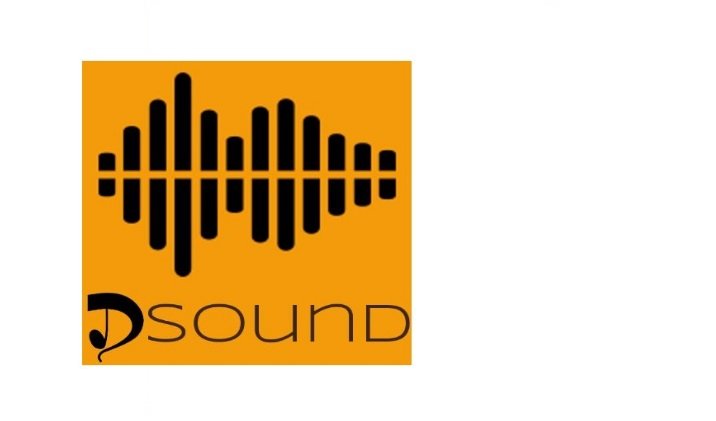- Starbucks is hot on Blockchain, cold on Bitcoin!
- Vietnam: Record Import of Mining Rigs!
- Ondiflo: New Platform for Payments in the Gas and Oil Industry!
- Shell acquires Shares of a Blockchain Startup!
- Update at Coincheck & NEM: After Attack Countermeasures are announced!
For the first time you can not only read Your Crypto News on Steemit but also listen to them as an audio edition on DSOUND!
@prc, @dsound team and all you other Steemians as you can see I have changed the DSOUND logo a bit. I wanted to highlight the "D" in the logo because it stands for decentralization which we all love so much. I hope you all like it and if you want feel free to use it.


Starbucks Chairman Howard Shultz said the coffeehouse chain is planning to incorporate blockchain technology and digital currencies into the payment process to "deepen digital customer relationships."
However, Shultz pointed out that Bitcoin is unlikely to play a role for the company, as the cryptocurrency is not a recognized currency.
He also made it clear that Starbucks would not work on its own cryptocurrency. Also, this step is by no means interpreted as an opinion for an investment in digital currencies or in the blockchain. Rather, the company wants to use its status to bring more credibility and trust to the technologies in question.
As reported by Diginomica, Shultz made these statements during an investor conference.
Blockchain technology could probably be used with the Starbucks app. Customers can order and pay for coffee using the app, which has been on the market since 2015, and earn reward points.
Almost a third of all orders in American branches are already made. Therefore, the management also considers whether cashless branches could be used more frequently.
Schultz had a digital vision long before most of Starbucks contemporaries and the company has exploited that (on the whole) successfully ever since. Setting out blockchain ambitions is a logical next step and one that, if handled with care, could provide the next ‘first mover’ advantage for the coffee giant.


Keeping the computer working for you - that's the dream of many ambitious miners. In Vietnam, too, the mining boom has broken out. In the still young year of 2018, almost 8,000 mining rigs were imported - more than in the whole of 2017.
Mining rigs are special computers designed to increase the hashing rate of crypto mining. These machines have been enjoying great popularity for some time. In Vietnam, demand has risen particularly in three months. The Ho Chi Minh City Customs Office (HMC) has announced the number of mining rigs imported during the first three weeks of January. According to this, almost 8,000 mining rigs were introduced, so that the import figures of the "mining machines" in 2018 were already overtaken by those of 2017. Demand has been rising since November. More than 5,500 mining rigs have been imported in the last two months of last year.
Cryptocurrencies are not considered legal tender in Vietnam. Nguyen Hoang Minh, deputy director of a branch of the State Bank in HMC, said according to regional media:
The use can be punished since January 1, 2018 with a fine of the equivalent of 5,000 to 7,000 euros. So far, however, there is no regulation regarding the cryptocurrency mining. The customs authority of HCM, however, has already been in favor of preventing the import of mining rigs.
Mining boom drives up prices
Nguyen Thanh Tuyen, deputy director of the customs department, told local media that the total value of these imports was about 9.9 million euros. This will bring the city almost one million euros in taxpayers' money. In Vietnam, the price for mining rigs is currently very high. Converted about 2,500 to 2,900 euros, sometimes even up to 3,500 euros would be required for a rig. The imported goods come from China, where mining rigs are still comparably cheap to buy. In view of the possible ban on mining in China, Vietnamese prospectors have probably recognized that this is the ideal time to equip themselves with mining rigs.


Amalto SA joins forces with ConsensSys to start Ondiflo. Together they want to develop an Ethereum-based blockchain to automate payment processes in the oil and gas industry.
The data management company Amalto SA has joined forces with the blockchain network ConsenSys. With their cooperation, they plan to develop a ticketing system for the fuel industry. The platform based on the Ethereum blockchain is primarily intended to help make payment processes faster, more transparent, safer and cheaper.
Ondiflo is not concerned with developing completely new processes. Rather, the team around Jean-Pierre Foehn (CEO), Sandro Giannetti (entrepreneur) and Rana Basu (ConsenSys) wants to combine existing systems. They want to implement them in the Ondiflo platform. These include the TMS dashboard from ConsenSys and the "Platform 6" from Amalto. From the result they expect the first end-to-end platform of the gas and oil industry, which is based on Ethereum.
Ondiflo founders are optimistic
By using Smart Contracts, the platform will be able to automate every step between ordering and paying for the markets. ConsumSys's Joe Lubin was optimistic about the new platform:
Foehn joined these praises:
Building this new venture on the of the Ethereum blockchain will serve many purposes. It automated all steps of the order-to-cash process associated with field services. Additionally, it helps further validate the Ethereum blockchain as a powerful and scalable technology stack. It is good to see more use cases outside of the traditional financial industry in this regard. The oil and gas supply chain industry can benefit from innovative ideas like this one.


Shell has acquired a minority stake in startup Applied Blockchain. The company develops blockchain solutions for oil and gas transactions.
Energy giant Shell has acquired a minority stake in a London startup called Applied Blockchain, Oilprice.com said. Applied Blockchain has been around for three years and has clients in the banking, telecoms, automotive, manufacturing and aerospace industries.
To date, no public information has been given on the deal. Applied Blockchain was founded in 2015. The startup develops blockchain applications in distributed ledger technology (DLT) and smart contracts. DLT is a special form of electronic data processing and data storage. It is a decentralized database that gives the participants of a network a collective read and write authorization. In the case of a centrally managed database, on the other hand, there is a central instance that makes the individual entries in the database.
Smart contracts allow companies to automatically enter into contracts under certain conditions. They guarantee legal security, although no notaries are needed.
In the oil and gas industry, the use of blockchain technology would make commodity asset transactions cheaper, while monitoring transactions would be much easier. For the energy companies, this would entail enormous savings.
In January 2017, the energy trading company Mercuria announced in partnership with ING and Societe Generale the preparation of the first oil deal using blockchain technology. The deal includes an African oil shipment to Mercuria shareholder ChemChina. Mercuria boss Marco Dunnand said at the World Economic Forum in Davos that the energy industry must digitize its oil production, refineries and shipping "more and more", reports Reuters.
Last year, a consortium of Shell, BP Statoil, and the financial houses Societe Generale, ABN, ING and AMRO decided to develop a trading platform for energy products based on blockchain technology.


The Japanese crypto-exchange Coincheck announced on Saturday that it will try to accommodate its users after the attack on Thursday night. Coincheck now wants to pay the users a total of $ 425 million, while the NEM Foundation is working on a tracking system for the lost NEM.
As I reported on Friday, the Japanese crypto exchange Coincheck succumbed to a comparatively huge attack on the system. Unknown people have transferred NEM worth 58 quadrillion yen from the crypto exchange. As it soon turned out, this was an attack that exploited the vulnerabilities of the crypto exchange. Coincheck responded by curbing all the activity on the exchange. Although this prevented further thefts. However, the missing NEM and Ripple could not be restored for the time being.
As you can see on there blog, Coincheck now wants to meet there users. So they want to refund the users the lost NEM. An average price is calculated from Friday to Sunday - from the moment all transactions were frozen until the moment when the crypto exchange announced the repayments.
As you can also see from the homepage, the amount of lost NEM is $523 million. Estimates suggest that they numbered around 260,000 users. All users who were affected by the attack, therefore, the operators want to pay out via the wallet of the exchange their losses in yen.
NEM announces tracking system
The NEM Foundation responded immediately to the attack. So they announced to develop immediately a tracking system. This should make it possible to track lost NEM.
As it turned out over the weekend, the stolen NEM were stored on a poorly secured light wallet. However, according to the current state of affairs, the attack only affected the theft of NEM, the Ripple transaction was probably a regular one.
In case you missed my last news just click here!

I wish you all a great Tuesday!!!
ⓁⓄⓥⒺ & ⓁⒾⒼⒽⓉ
Best regards
@danyelk
► Listen on DSound
► Listen from source (IPFS)


